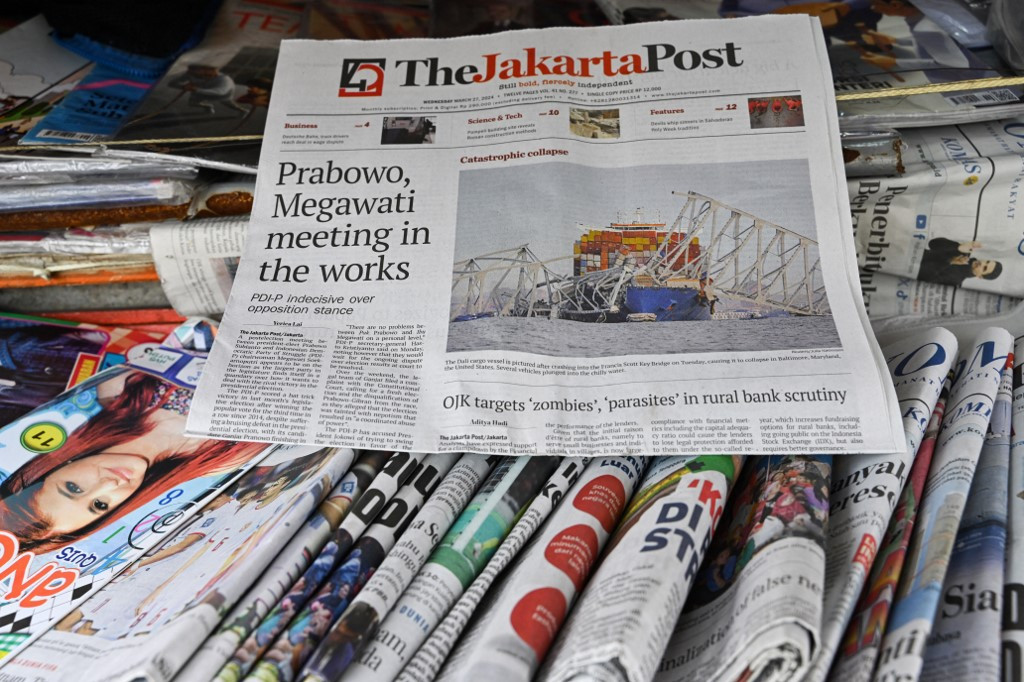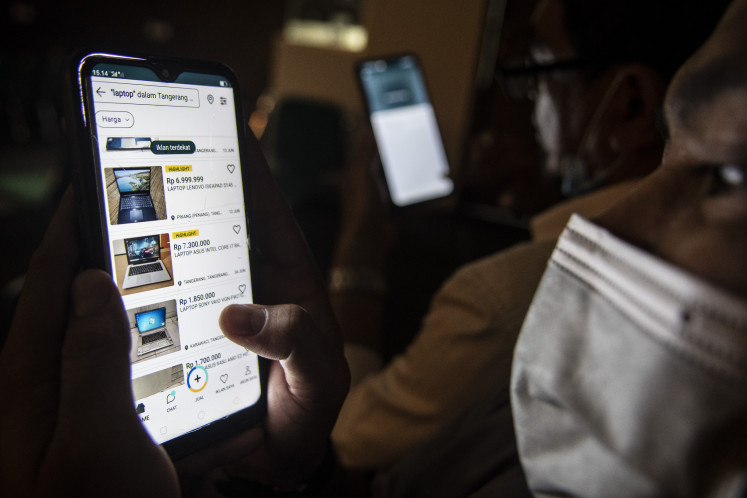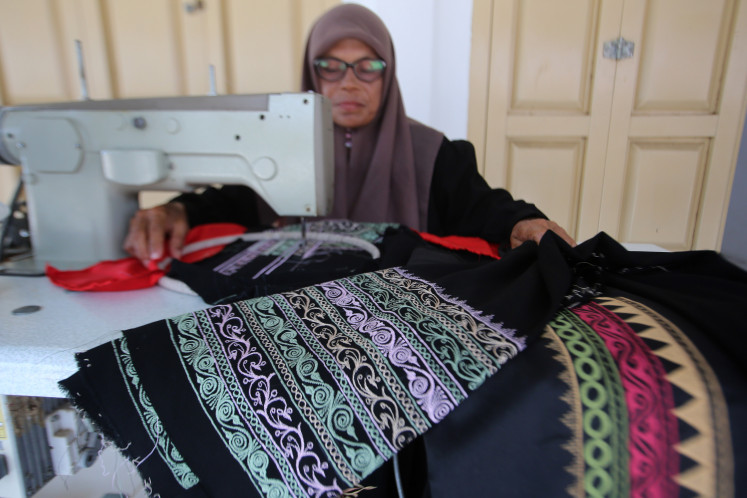Popular Reads
Top Results
Can't find what you're looking for?
View all search resultsPopular Reads
Top Results
Can't find what you're looking for?
View all search resultsSocial media domination in Indonesians’ news consumption
Trust in news is falling as more and more people turn away from TV, print and online news sources.
Change text size
Gift Premium Articles
to Anyone
I
ndonesians are increasingly losing trust in the news with more than 60 percent reporting they do not trust or feel ambivalent to the news they read or watch. Further, social media use continues to grow while there has been a rapid shift away from television, print and online sources.
Those are among the key findings from the annual global Reuters Institute Digital News Report survey conducted in 48 countries and analyzed by the News and Media Research Centre at the University of Canberra.
The 2025 survey shows that Indonesians are heavy social media users with a growing appetite for news on the short video platform, TikTok. While news consumption across all news platforms is declining, social media remains the most popular with 57 percent of Indonesians using it as a general source of news and 40 percent are relying on it as their main source of news.
The figure is even higher for consumers aged 18-24 with half of this cohort saying social media platforms are their primary gateway to news.
In a country with extremely high smart phone use, there is strong competition among social platforms for the attention of Indonesian news consumers.
After five years at the top, the popularity of the closed messaging app WhatsApp has fallen 17 percentage points to 43 percent, closely rivaled by YouTube (41 percent, -5pp) and Facebook (39 percent, -3pp). Hot on their heels is the viral video platform TikTok which has surged in popularity from 11 percent in 2021 to 34 percent in 2025.
The strong use of social media and gradual decline in trust reflects a loss of interest in news and high levels of news avoidance. Three quarters of Indonesian news consumers say they sometimes, occasionally or often avoid the mainstream news. This is higher than the global average of 42 countries in the survey (71 percent) and in neighboring Australia where 69 percent say they avoid the news.
Indonesians avoid the news for a range of reasons, primarily because it can lead to arguments and feel there is too much coverage of politics. Around a quarter say they avoid the news because there is too much coverage of war and conflict, it has a negative impact on their mood and they feel worn out by the sheer volume of it.
Faced with this problem, Indonesians seek new ways to tailor their news. Almost 30 percent surveyed said they would be interested in AI generating news summaries of articles and translating stories into their own native language.
Indonesians are also rapidly turning to AI chatbots as sources of news. 9 percent of those surveyed said they used AI as a source of news in the past week. This figure possibly reflects the growth in generative AI news sources in recent times.
The Indonesian media industry is also suffering further loss of advertising revenue to news outlets following budget cuts by the federal government, according to the Reuters report. That in turn has led to editorial cost cutting and the wide adoption of AI by journalists to assist them with research, transcription and headlines.
There has also been a rise in AI-led news outlets. For instance, broadcaster TVOne launched TVOneAI which has AI-generated reporters presenting the news across its social media channels. Other outlets, like Liputan6 are using AI for sports, fact-checking and global news.
The Alliance of Independent Journalists (AJI) notes an increase in the use of AI for several aspects of news production including, but not limited to, data collection, data selection, data analysis, trend analysis, audience analysis, news editing, news framework preparation, content personalization and news dissemination. As many as 13 online media members of the Indonesian Cyber Media Association (AMSI) are using AI for one or more stages of news production.
While these developments raise concerns within parts of the news industry about job losses, the Indonesian public appears to be relatively comfortable with the rise of AI generated news. 38 percent of people surveyed said they were very or somewhat comfortable with news being primarily produced by AI with a bit of human oversight and a further 40 percent said they were neither comfortable nor uncomfortable with the development.
How can mainstream news organizations re-engage audiences who are losing faith in news?
While much of the 2025 survey data reflects an ongoing decline in mainstream news consumption, it also points to possible growth through innovation and remedies to these downward trends.
In this year’s survey we asked if respondents had received any type of education or training, formal or informal, about how to use the news.
Only around one third of Indonesians surveyed said they had received some kind of news literacy education. This was highest among 18 to 24 year olds (48 percent) and lowest among people 55-64 years of age (27 percent). Like in many other countries in the global survey, there is plenty of opportunity for governments and the news industry to boost news literacy education across the wider community.
And it makes good economic sense to do so. The data clearly demonstrate that Indonesians who have received some level of news literacy education are more interested in news, have higher trust in it and are much more likely to pay for it.
They are also much more likely to verify information they consider to be untrustworthy by going to official sources, fact checking websites and Wikipedia. And as the use of generative AI progresses in all areas of life, it is becoming increasingly urgent for governments to ensure that citizens can use the technology, identify and verify AI content, and for news organizations to be transparent about their use of AI as they find ways to tackle the downturn in trust.
---
Sora Park is a professor of communication and the director, Caroline Fisher is an adjunct professor and Lilik Mardjianto is a PhD Candidate, all at the News & Media Research Centre, the University of Canberra. The article is republished under a Creative Commons license.











